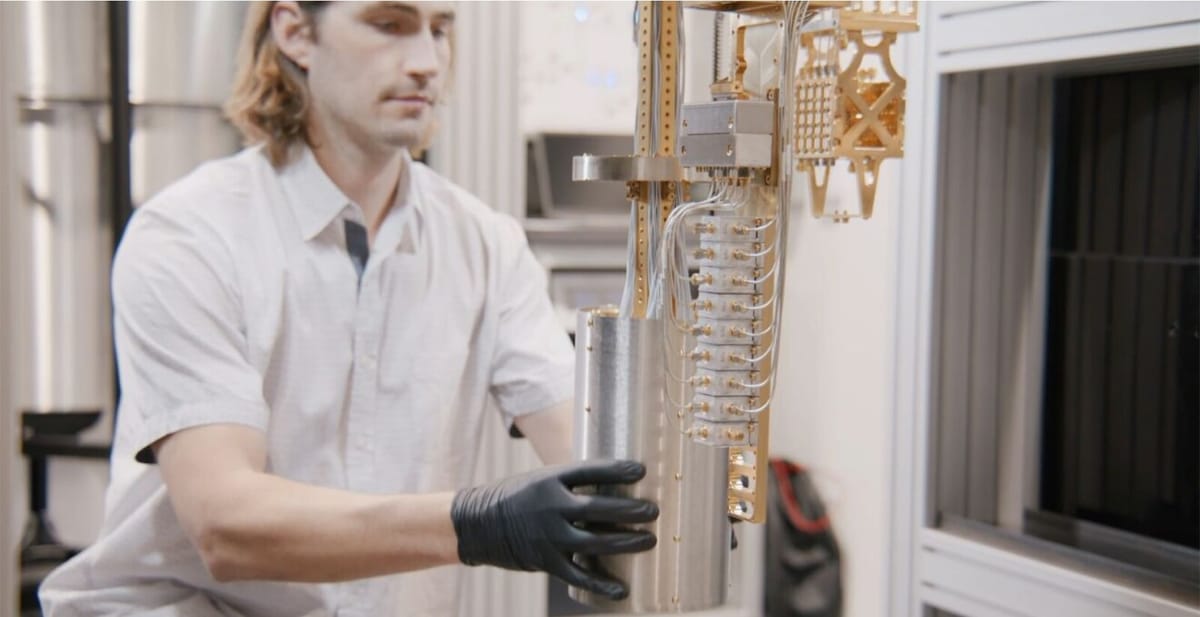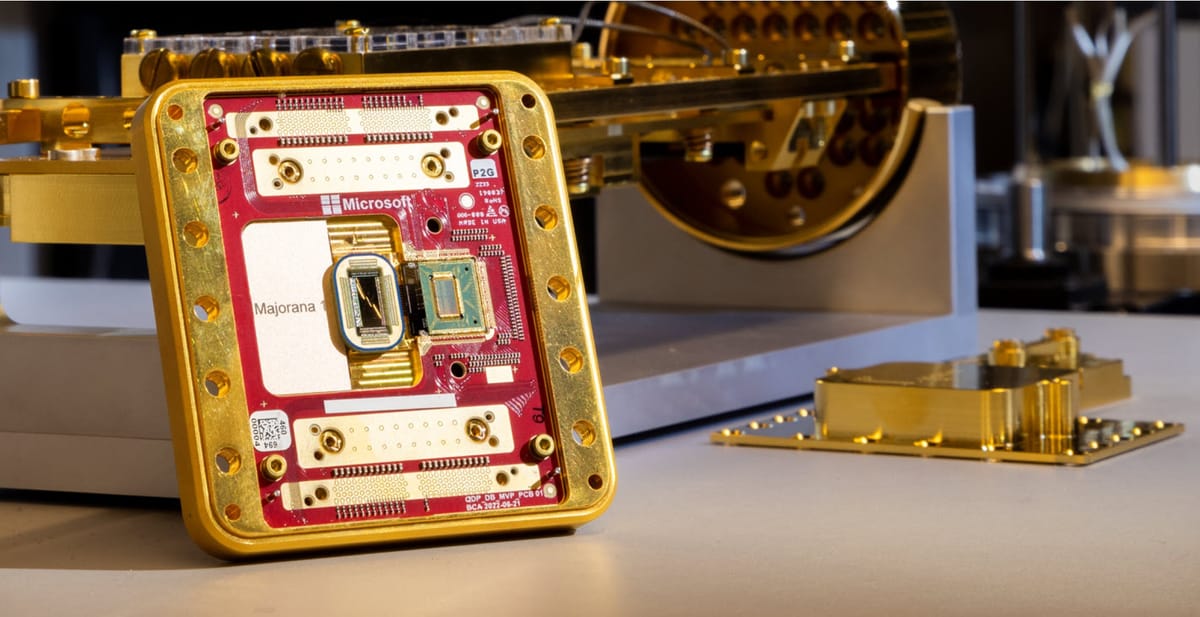
Amazon Web Services has entered the quantum computing hardware race with its first-ever quantum chip, Ocelot, developed at the AWS Center for Quantum Computing at the California Institute of Technology. The prototype chip represents a fundamental reimagining of quantum computing architecture, built from the ground up with error correction as its primary design consideration.
Key Points
- AWS researchers believe this approach could accelerate practical quantum computing timeline by five years
- The chip features nine qubits including five cat qubits in a scalable, microchip-based architecture
- Quantum experts estimate truly useful quantum computing remains 10-15 years away despite this advance
Quantum computers are notoriously sensitive to environmental interference—everything from vibrations and heat to electromagnetic signals and even cosmic radiation can disrupt their quantum states and introduce errors. The conventional approach to solving this problem requires enormous redundancy in physical qubits, making practical quantum computers prohibitively resource-intensive.
"The biggest challenge isn't just building more qubits," explained Oskar Painter, AWS director of Quantum Hardware. "It's making them work reliably."
Ocelot takes a different approach with its innovative use of "cat qubits," named after Schrödinger's famous thought experiment. These specialized qubits intrinsically suppress certain forms of errors, dramatically reducing the resources required for quantum error correction. According to AWS researchers, this design could slash the cost of implementing quantum error correction by up to 90% compared to current approaches.
"We didn't take an existing architecture and then try to incorporate error correction afterwards," said Painter. "We selected our qubit and architecture with quantum error correction as the top requirement."
The chip itself consists of two integrated silicon microchips, each approximately 1cm² in area, bonded together in an electrically-connected stack. It contains 14 core components: five data qubits (the cat qubits), five buffer circuits for stabilizing these qubits, and four additional qubits for detecting errors. The high-quality oscillators crucial to the cat qubits' operation are made from tantalum, a superconducting material that AWS materials scientists have optimized specifically for this application.
Though Ocelot represents a significant breakthrough in quantum architecture, it remains a relatively modest prototype with just nine qubits. For comparison, Google's current leading quantum chip, Willow, features 105 qubits—and experts believe that practical quantum computers may require a million or more qubits to handle commercial workloads while tolerating errors.
Nevertheless, AWS believes the Ocelot architecture could eventually scale to a full quantum computer with as little as one-tenth the resources of conventional approaches. This efficiency could accelerate the timeline for practical quantum computing by up to five years, according to Painter.

The timing of the announcement is particularly notable, coming just one week after Microsoft unveiled its own quantum chip. Both companies published their findings in peer-reviewed papers in the journal Nature, signaling the scientific legitimacy of their advances. The near-simultaneous announcements highlight the intensifying competition in quantum computing among major tech companies.
Despite this progress, quantum computing still faces a long road to commercial practicality. Painter estimated that commercial workloads likely won't run on quantum computers for at least another decade. Industry observers offered varying timelines, with NVIDIA CEO Jensen Huang suggesting 15-30 years, while former Intel CEO Pat Gelsinger maintained his more optimistic prediction of useful quantum computing by 2030.
For now, AWS customers interested in exploring quantum computing can access Braket, the company's fully-managed quantum computing service that provides access to various third-party quantum hardware, simulators, and development tools. AWS plans to eventually make future versions of its quantum chips available through this service.
As quantum computing continues to advance, the potential applications remain tantalizing: from accelerated drug discovery and development of new materials to more accurate financial risk assessment and optimization problems beyond the reach of classical computers. With Ocelot, AWS has staked its claim in the quantum computing landscape, potentially bringing that future closer to real


